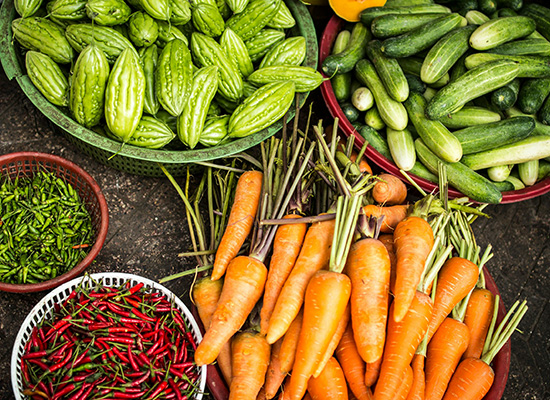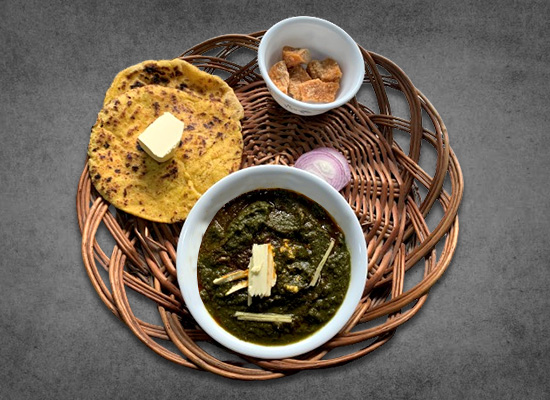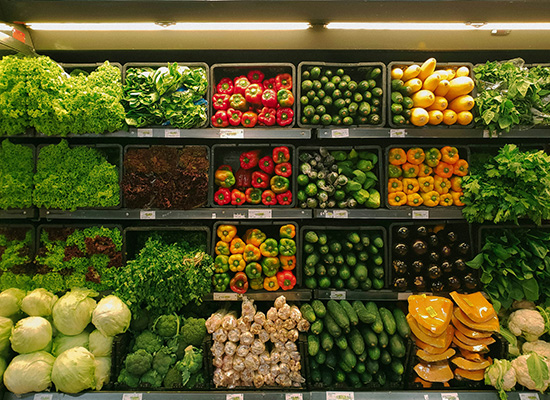In the rich and diverse mosaic that is our Indian culture, food means more than mere nutrition; it’s destined as a part of who we are. The concept binds us together in communities.
As smart shoppers, we find comfort in being categorical about our food to be sure that it is of high quality. But what exactly is “quality food,” and how can we identify it among the vast array of choices In this article, we uncover the key components that determine food quality by delving into various aspects of providing good-quality products in terms of their overall control and compliance with standards and safety requirements as well as discussing the relevancy of organic options to our general health state.
Understanding Food Quality
Beyond taste alone, we uncover the diverse attributes that define a truly high-quality dining experience, reflecting the cultural richness of the Indian palate.

- What is Food Quality? Food quality is not just taste; it covers a broad range of qualities that make any food item attractive. These could be taste, aroma, nutritional content or the safety of a food product from harmful substances as well as ethical considerations like sustainability and fair trade practices.
- Food Quality Control: Food quality control is at the core of our Quality policy. This process entails structured steps to ensure and improve the quality of food products. From production through to distribution, quality control mechanisms are put in place that ensure consumers get safe and good-quality food products.
- Food Quality Standards: Food quality standards are used as benchmarking parameters that determine acceptable levels for different attributes within food products. Regulatory authorities set these standards to ensure continuity and safety. In India, bodies like the Food Safety and Standards Authority FSSAI have a pivotal role in developing and enforcing these standards through providing a framework for both producers as well as consumers.
Factors Affecting Food Quality

From freshness and seasonality to hygiene measures, let’s delve into the many aspects that contribute significantly to ensuring the optimum quality of our cuisines.
- Freshness and Seasonality: Freshness of the ingredients is one of the major determinants to food quality. The concept of seasonal and regional produce is therefore very much entrenched in a country like India, especially in the regions where cooking habits vary from one region to the other..
- Storage and Handling Practices: The quality of the food, however, can be ensured if proper storage and handling are carried out. Proper conditions from the farm to table such as temperature and hygiene need to be prepared or maintained to prevent spoilage and contamination so that the final output is at its best state when it arrives on consumers’ tables.
- Hygiene and Sanitation: The food quality directly depends on how clean the space where the processing and preparation of these foods takes place is done. The health of the consumer is protected by constant hygiene and sanitation in all stages along with the food chain from farm to table, reducing the risk of microbial contamination.
- Nutritional Value: The nutritional value is one of the most critical components of food quality. A healthy life also relies on a balanced and nutritional diet. More and more consumers prefer products which have such vitamins, minerals as well other important nutrients that can support healthy living.
What is Good Quality Food?

Beyond the plate, discover the essence of good quality food as we explore the safety, transparency, and nutritional richness that define a wholesome dining experience.
- Safe and Wholesome: To begin with, high-quality food is very edible. It complies with the recognized food safety criteria, therefore it is free from contamination as well and does not lead to health risks. Wholesomeness also implies nutrition because nutritious food contains the needed nourishment.
- Transparent Sourcing: The consumers of the modern day are more conscious about their food origins. However, certain quality foods are comparatively more open on their origins providing information about the source of ingredients, details in how it is produced and if those who produce use an ethic practices which allow an element trust between producers to consumers.
Benefits of Organic Food

Reduced exposure to chemicals, higher nutrient levels and an emphasis on sustainable practices describe some of the benefits that organic choices are not limited options but rather lifestyle choices.
- Reduced Chemical Exposure: Eating organic food, which is free of synthetic pesticides and also fertilizers decreases the exposure to chemicals. This is more relevant in the case of India where agricultural chemical hazards on human health are being very increasingly debated. Organic selections decrease the risk of ingesting hazardous residues.
- Nutrient Density: Soil health and biodiversity are very much promoted by organic farming methods leading to nutrient-rich produce. This means that the foods will not only be very delicious but also contain a nutritional significance associated with general health and wellness.
- Environmental Sustainability: Organic food is very compatible with sustainable practices. Soil protection, water savings and biodiversity are supported by organic farming. Indians are turning more eco-friendly and they are become interested in a sustainable life, knowing that organic options are gaining popularity among them.
Conclusion

In the multifaceted world of Indian cuisine, presentation progressively includes considerations beyond taste when talking about “quality food”. Ranging from strict food quality control processes to meeting standards and the increasing tendency of consumers favouring organic choices, people are starting to be more specific with what they have on their plates. As we traverse the complex terrain of culinary choices, knowing what constitutes high quality gives us the power to make knowledgeably discerning decisions that not only delight our palates but also improve ourselves and safeguard nature.

